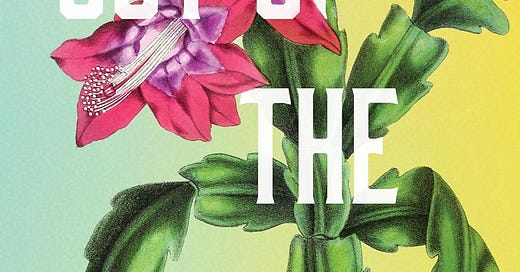
After reading his memoir The Road to Appledore, or How I Went Back to the Land Without Ever Having Lived There in the First Place, I was sufficiently intrigued by Tom Wayman’s humour and his interest in nature to pick up his new poetry collection, Out of the Ordinary.
Out of the Ordinary includes 62 poems, the majority of which have been previously published in Worth More Standing: Poets and Activists Pay Homage to Trees, Ice: A Water Anthology, The Hudson Review, The Antigonish Review, and other venues. Each of the collection’s six sections is prefaced by comments from Wayman about the poems, a practice I found both interesting and illuminating.
“Wayman’s poems are simultaneously deep, evocative, and approachable.”
One section, titled “Papyrus Elegy: Dennis Saleh 1942-2020” is devoted to poems about California author Dennis Saleh. The section “Sitting With My Father: Transitions” includes poems about grief and loss.
Two sections in particular, “The Universe Making Itself Up: Oddities” and “Seed, Nail, Snowfall: Unexpected Interiors” live up to the collection’s “Out of the Ordinary” title, offering work that is mind-bendingly and delightfully strange.
Wayman describes his poems as “a moment brought into focus out of the blur of everyday life,” and his works evoke strong feelings, sometimes by dipping into hyperbole, surrealism, or magical realism. In this way, it is possible for poems, in Wayman’s words, to point to “the mysteries intrinsic to being alive—mysteries that make children of us again.”
Several of the poems in “Seed, Nail, Snowfall” portray the narrator entering into an everyday object like a nail or water droplet, and discussing what he sees or feels, with the distortion providing a different perspective. “Gate” begins “I entered a drop of March rain / clinging to the underside of a branch.” In “Nail,” Wayman imagines stepping inside a nail, “where a small skid-steer loader, / bucket filled with earth, was backing up / to the rhythmic noise of the reverse alarm.”
Poems like “Bear Habitat in The New Yorker” and “Cancer Bear” are about more than one thing; in the former, Wayman draws a parallel between a bear scavenging for food and his own desires for publication, while the latter links a bear invading Wayman’s home with receiving news about friends who have been diagnosed with cancer. Many of Wayman’s poems offer observations about the world we live in. Some deal with the union movement, and the pitfalls of capitalism.
In “Inquiry,” the narrator converses with a handful of earth, asking it who it belongs to. The grains of soil, in return, resist the notion of ownership, telling the narrator:
this form of mine
is temporary as yours,
just on a different scale.
We’re transients, who can neither own
nor be owned—both of us
only travelling through
back to the stars.
Humour or slyly sarcastic observations are also a feature of the poems in this collection. “Economic Practices on Earth Affect the Inhabitants of Heaven” reveals that the wings given to newcomers in Heaven, though once made “in-house,” have now been outsourced, “assembled in a warmer clime.” We go on to learn that “Nobody is an enemy / when a cheap manufacturing opportunity presents itself.”
I found the poem “Dog Eat Dog in the Dictionary” particularly resonant. This poem begins, “To make room for new words / some old ones have to go.” The poem’s narrator provides some examples, then goes on to playfully explore the notion of the word “Enough” being declared redundant:
“Nobody can run a modern economy,
while you’re in the picture,” a supervisor told Enough
while demanding its keys.
“People have to be convinced always to want more
if the wheels are going to turn
and the money flow into the proper hands.”
Witty and insightful, while at the same time bearing an uncomfortable edge of truth, this was my favourite entry in the collection, though “Leaf Bats” was a close second.
Some poetry collections provide an experience that is largely intellectual—admiration of deft turns of phrase or powerful metaphors. Wayman’s poems are simultaneously deep, evocative, and approachable. Though the poems demonstrate Wayman’s ability to, as Emily Dickinson advised, “tell it slant,” in Wayman’s hands this translates into works that are resonant without being rendered obscure. Readers who like humour, striking metaphors, and a touch of uniqueness should find much to enjoy here. Recommended.
About the Author
Tom Wayman’s prolific literary career includes writing more than twenty poetry collections, three collections of critical and cultural essays, three books of short fiction and a novel, as well as editing six poetry anthologies. Wayman lives in Winlaw, BC, and his website is www.tomwayman.com.
Book Details
Harbour Publishing
ISBN: 9781998526123
Paperback / softback
6 in x 9 in - 140 ppPublication Date: 04/03/2025








